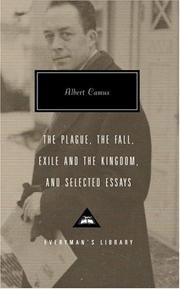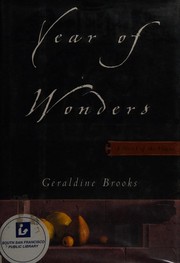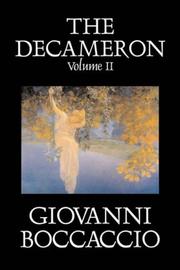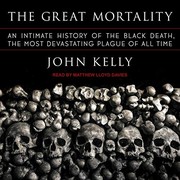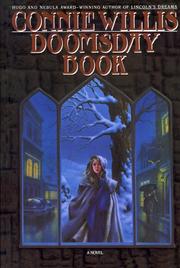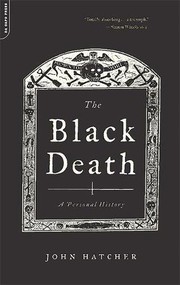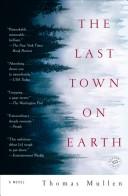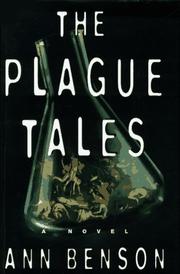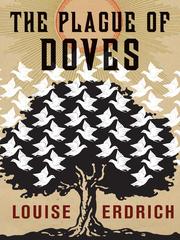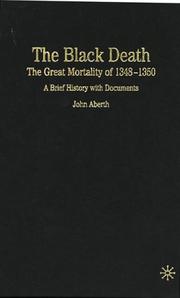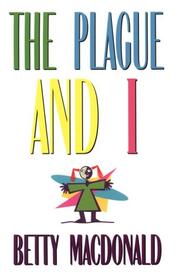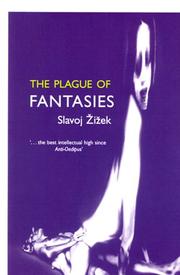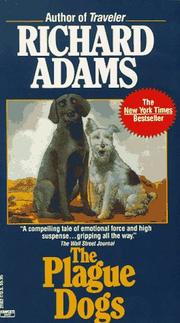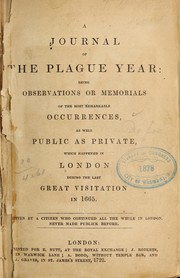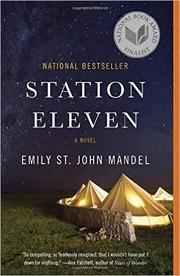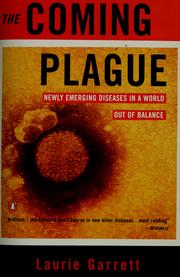Are you ready to dive into the fascinating world of pandemics and plagues? Whether you’re a history buff, a literature lover, or just curious about the human experience during times of crisis, there’s a book on plague waiting for you. From classic novels to gripping non-fiction accounts, we’ve curated a list of the 20 best plague books that will transport you to different eras and help you understand the impact of infectious diseases on society. Let’s explore the dark and enlightening world of plague literature together.
Contents
- 1 20 Best Books About Plague
- 2 The Plague
- 3 Year of Wonders
- 4 The Decameron
- 5 The Great Mortality: An Intimate History of the Black Death
- 6 Doomsday Book
- 7 The Black Death: A Personal History
- 8 The Last Town on Earth
- 9 The Plague Tales
- 10 The Black Death: Natural and Human Disaster in Medieval Europe
- 11 The Plague of Doves
- 12 The Black Death: The Great Mortality of 1348-1350: A Brief History with Documents
- 13 The Plague and I
- 14 The Plague of Fantasies
- 15 The Plague Dogs
- 16 The Ghost Map: The Story of London’s Most Terrifying Epidemic
- 17 A Journal of the Plague Year
- 18 The Hot Zone: The Terrifying True Story of the Origins of the Ebola Virus
- 19 Station Eleven
- 20 The Coming Plague: Newly Emerging Diseases in a World Out of Balance
- 21 Pale Rider: The Spanish Flu of 1918 and How It Changed the World
- 22 Conclusion
- 23
- 24 Explore 20 Best The Ocean For Toddlers Books with Our 2024 Update
- 25 The 20 911 Books: Best 2024 Update and Review
- 26 Reading List of Life In The 1800S Books – 2024 Update
20 Best Books About Plague
The Plague
by Albert Camus
The Plague, written by Albert Camus, is a gripping novel that explores the devastating effects of a deadly epidemic on the town of Oran. The story follows Dr. Rieux and a cast of characters as they navigate the physical and emotional toll of the outbreak. Camus weaves a tale of fear, isolation, and resilience as the town grapples with the sudden and inexplicable spread of the disease. Through vivid prose and compelling characters, the book delves into the complexities of human nature when faced with a crisis. The novel is a thought-provoking exploration of the human condition in the face of adversity and has been hailed as a timeless classic. The Plague is a must-read for anyone interested in a powerful and poignant reflection on the impact of a plague on a community.
Year of Wonders
by Geraldine Brooks
Year of Wonders by Geraldine Brooks is a captivating novel set in a small English village during the 1666 plague, making it a compelling book about plague. The story follows the protagonist, Anna Frith, as she witnesses the devastating effects of the bubonic plague on her community. As the village is quarantined, fear and desperation grip the inhabitants, leading to a series of extraordinary events that test their faith, resilience, and humanity. Through Brooks’ vivid and evocative storytelling, readers are immersed in a world of despair, courage, and ultimately, hope. Year of Wonders is a poignant and thought-provoking plague book that explores the human experience in the face of unimaginable tragedy, making it a must-read for historical fiction enthusiasts.
The Decameron
by Giovanni Boccaccio
The Decameron is a 14th-century Italian masterpiece by Giovanni Boccaccio. Set during the Black Death, this book about plague follows ten young people who flee to the countryside to escape the deadly pandemic. To pass the time, they tell each other 100 stories over ten days, covering themes of love, wit, and tragedy. The tales range from comedic to tragic, offering a captivating glimpse into the human experience during a time of crisis. Boccaccio’s work is a testament to the resilience of the human spirit in the face of adversity, making it a timeless and relevant read for any era. The Decameron is not just a book on plague, but a timeless exploration of the human condition.
The Great Mortality: An Intimate History of the Black Death
by John Kelly
The Great Mortality: An Intimate History of the Black Death by John Kelly is a captivating book on plague that provides a detailed and immersive account of one of the most devastating pandemics in human history. With meticulous research and vivid storytelling, Kelly delves into the origins, spread, and impact of the plague, offering readers a compelling narrative that brings the medieval world to life. Through personal stories, historical accounts, and scientific analysis, the book about plague sheds light on the social, economic, and cultural repercussions of the disease, painting a comprehensive picture of its profound and far-reaching effects. Kelly’s masterful blend of scholarship and storytelling makes The Great Mortality a must-read for anyone interested in understanding the complexities of this harrowing period in history.
Doomsday Book
by Connie Willis
Doomsday Book by Connie Willis is a gripping science fiction novel that transports readers back in time to the 14th century, during the outbreak of the Black Death. This compelling book on plague follows the story of a time-traveling historian who becomes stranded in the midst of the deadly epidemic. As she struggles to survive and understand the horrors unfolding around her, the novel expertly weaves together elements of history, science, and human resilience. With meticulous attention to detail, Willis brings the devastating impact of the plague to life, immersing readers in a world of fear, despair, and ultimately, hope. This plague book is a thought-provoking exploration of the human experience in the face of unimaginable tragedy, and a must-read for fans of historical fiction and science fiction alike.
The Black Death: A Personal History
by John Hatcher
The Black Death: A Personal History by John Hatcher is a captivating book about the plague that takes readers on a journey through one of the most devastating pandemics in history. Hatcher provides a unique and personal perspective on the plague by focusing on the experiences of individuals who lived through this harrowing period. Through meticulous research and vivid storytelling, he brings to life the social, economic, and psychological impact of the plague on medieval society. This book on plague offers a gripping account of the Black Death, shedding light on the human suffering and resilience in the face of a seemingly unstoppable epidemic. Hatcher’s narrative is both informative and thought-provoking, making it a must-read for anyone interested in history, medicine, or the human experience in times of crisis.
The Last Town on Earth
by Thomas Mullen
The Last Town on Earth by Thomas Mullen is a gripping historical novel set during the 1918 influenza pandemic. The small town of Commonwealth is quarantined to prevent the spread of the deadly flu, but when a stranger arrives seeking refuge, the town must decide whether to let him in or keep their isolation intact. As fear and tension rise, the townspeople are forced to confront their deepest fears and moral dilemmas. Mullen’s expert storytelling and vivid characters bring this haunting tale to life, exploring the themes of community, sacrifice, and the devastating impact of a deadly contagion. This plague book is a thought-provoking and timely read that delves into the complexities of human nature in the face of a catastrophic epidemic.
The Plague Tales
by Ann Benson
The Plague Tales by Ann Benson is a gripping historical fiction novel that weaves together two parallel stories set in different time periods. This intricately plotted book on plague takes readers on a thrilling journey from 14th century Europe, during the Black Death, to the modern day. The narrative follows the lives of two women, separated by centuries, who are both connected by a deadly plague. Through Benson’s vivid and evocative storytelling, readers are transported to a world ravaged by disease, where the characters’ lives intersect in unexpected ways. The book about plague is filled with suspense, mystery, and rich historical detail, making it a compelling read for anyone interested in the impact of pandemics throughout history. The Plague Tales is a must-read for fans of historical fiction and anyone intrigued by the complexities of the plague.
The Black Death: Natural and Human Disaster in Medieval Europe
by Robert S. Gottfried
The Black Death: Natural and Human Disaster in Medieval Europe by Robert S. Gottfried is a compelling book about plague that delves into the devastating impact of the bubonic plague on medieval Europe. Gottfried’s thorough research and vivid storytelling bring to life the horrors of the epidemic, from the rapid spread of the disease to its harrowing effects on society, economy, and culture. The book provides a comprehensive overview of the plague book, exploring its natural origins as well as the human factors that contributed to its catastrophic spread. Gottfried’s engaging narrative skillfully combines historical analysis with personal accounts, offering a poignant and informative portrayal of one of the most catastrophic events in human history. The Black Death is a must-read for anyone interested in understanding the profound impact of the bubonic plague on medieval Europe.
The Plague of Doves
by Louise Erdrich
The Plague of Doves by Louise Erdrich is a captivating and haunting novel that delves into the interwoven lives of the people in a small North Dakota town. Set against the backdrop of a brutal crime committed against an Ojibwe family, the story unfolds through multiple perspectives, revealing the complexities of race, identity, and community. As the town grapples with the aftermath of the crime, long-buried secrets and painful truths are unearthed, forcing the characters to confront their own histories and the legacy of violence that haunts them. With lyrical prose and a richly textured narrative, Erdrich crafts a powerful and deeply moving exploration of the lasting impact of injustice and the resilience of the human spirit. This book about plague will leave readers spellbound with its evocative storytelling and profound insights into the human experience.
The Black Death: The Great Mortality of 1348-1350: A Brief History with Documents
by John Aberth
The Black Death: The Great Mortality of 1348-1350: A Brief History with Documents by John Aberth is a compelling book on plague that offers a concise yet comprehensive overview of one of the most devastating pandemics in human history. Aberth’s insightful analysis delves into the causes, spread, and impact of the plague, shedding light on the social, economic, and religious upheaval it caused. The book is enriched with a collection of primary sources and documents that provide a firsthand account of the plague and its aftermath, allowing readers to gain a deeper understanding of the human experience during this tumultuous period. Aberth’s engaging writing style and meticulous research make this plague book an essential read for anyone interested in the history of pandemics and their enduring impact on society.
The Plague and I
by Betty MacDonald
The Plague and I by Betty MacDonald is a witty and touching memoir that takes readers on a journey through the author’s experience with tuberculosis, also known as the “plague”. MacDonald writes with humor and warmth as she recounts her time in a sanatorium, sharing her observations and interactions with other patients and staff. Despite the serious subject matter, the book is filled with lighthearted moments and candid reflections on illness and recovery. MacDonald’s sharp wit and resilience shine through in this candid account of her battle with the ‘plague’. The Plague and I is a timeless classic that offers a unique perspective on illness and the human spirit.
The Plague of Fantasies
by Slavoj Žižek
The Plague of Fantasies by Slavoj Žižek is a thought-provoking book about the ‘plague’ of fantasies that infect our society. Through a psychoanalytic lens, Žižek explores the pervasive nature of fantasies and their impact on our culture, politics, and personal lives. He delves into the ways in which fantasies shape our desires, fears, and beliefs, and how they can lead to destructive behaviors and ideologies.
Žižek’s writing is both insightful and challenging, as he draws on a wide range of cultural references and philosophical theories to dissect the workings of fantasy in the modern world. This ‘plague book’ offers a unique perspective on the role of fantasies in shaping our reality, and invites readers to question their own unconscious motivations and beliefs. It is a must-read for anyone interested in psychology, philosophy, and the complexities of human nature.
The Plague Dogs
by Richard Adams
The Plague Dogs by Richard Adams is a gripping and thought-provoking book about two dogs who escape from a research laboratory in the Lake District. The story follows Snitter and Rowf as they struggle to survive in the wild, while being pursued by the authorities who fear they may carry a deadly disease. This book about plague is a powerful exploration of the ethical implications of animal testing and the consequences of human actions on the natural world. Adams’ vivid descriptions and emotionally charged storytelling make this plague book a compelling read that will leave a lasting impact on readers. The Plague Dogs is a heart-wrenching and deeply moving tale that will make you question the treatment of animals and the impact of scientific research on the environment.
The Ghost Map: The Story of London’s Most Terrifying Epidemic
by Steven Johnson
The Ghost Map: The Story of London’s Most Terrifying Epidemic by Steven Johnson is a captivating book about a plague that struck London in the 19th century. Johnson masterfully weaves together the story of Dr. John Snow and Reverend Henry Whitehead, who worked tirelessly to uncover the source of the deadly cholera outbreak. The book takes readers on a journey through the crowded streets of Victorian London, exploring the devastating impact of the epidemic and the groundbreaking discoveries that ultimately led to the understanding of how the disease spread. Johnson’s vivid storytelling and meticulous research make this plague book a gripping and enlightening read. The Ghost Map offers a fascinating insight into the history of epidemiology and the resilience of humanity in the face of a deadly book on plague.
A Journal of the Plague Year
by Daniel Defoe
A Journal of the Plague Year, written by Daniel Defoe, is a gripping book about plague that takes readers back to the haunting days of the Great Plague of London in 1665. The novel is presented as a first-person account of the epidemic, offering a deeply immersive experience of the fear, chaos, and resilience of the people living through this devastating time. Defoe’s vivid portrayal of the city’s descent into panic and the individual stories of survival and loss make this plague book a compelling and haunting read. Through the eyes of the protagonist, readers witness the breakdown of social order, the collapse of medical infrastructure, and the human struggle for survival in the face of an unstoppable and terrifying force. A Journal of the Plague Year is a powerful and evocative portrayal of a city in crisis, and a timeless exploration of the resilience of the human spirit in the face of unimaginable hardship.
The Hot Zone: The Terrifying True Story of the Origins of the Ebola Virus
by Richard Preston
The Hot Zone by Richard Preston is a gripping book on plague that delves into the origins and terrifying spread of the Ebola virus. Through vivid storytelling and meticulous research, Preston takes readers on a harrowing journey to the heart of Africa, where the deadly virus first emerged. The book explores the real-life events surrounding a series of outbreaks, uncovering the high-stakes battle between scientists and the lethal microorganisms they seek to contain. With a potent mix of science, suspense, and human drama, The Hot Zone is a chilling and eye-opening book about plague that will leave readers on the edge of their seats. This haunting true story provides a sobering look at the potential for global catastrophe, making it a must-read for anyone interested in epidemiology, infectious diseases, or simply the power of a well-told tale.
Station Eleven
by Emily St. John Mandel
Station Eleven by Emily St. John Mandel is a gripping book about a devastating pandemic that wipes out most of the world’s population. Set in a post-apocalyptic world, the story follows a group of interconnected characters as they navigate the challenges of survival and find meaning in a world forever changed by the outbreak of a deadly virus. Mandel weaves together multiple narratives, moving back and forth in time, to create a rich and compelling story that explores the fragility of civilization and the enduring power of art and human connection. This thought-provoking plague book is a haunting and beautifully written exploration of the resilience of the human spirit in the face of unimaginable tragedy.
The Coming Plague: Newly Emerging Diseases in a World Out of Balance
by Laurie Garrett
The Coming Plague by Laurie Garrett is a captivating and eye-opening book about the emergence of newly emerging diseases in a world that is out of balance. This plague book delves into the complex web of factors that contribute to the spread of infectious diseases, from globalization and urbanization to climate change and the breakdown of public health infrastructure. Garrett’s thorough research and compelling storytelling shed light on the interconnectedness of human, animal, and environmental health, and the potential for devastating pandemics in the modern world. With its gripping narratives and thought-provoking analysis, The Coming Plague is a must-read for anyone interested in understanding the dynamics of infectious diseases and the urgent need for global health preparedness.
Pale Rider: The Spanish Flu of 1918 and How It Changed the World
by Laura Spinney
Pale Rider: The Spanish Flu of 1918 and How It Changed the World by Laura Spinney is a compelling book about the devastating impact of the influenza pandemic of 1918. Spinney dives deep into the history of the outbreak, exploring its global reach and the profound ways it reshaped the world. Through meticulous research and vivid storytelling, she brings to life the human stories of those who lived through this plague, painting a haunting picture of the fear and suffering that swept the globe.
This plague book provides a fascinating analysis of how the Spanish Flu influenced the course of history, from the medical advancements it spurred to its impact on politics and society. Spinney’s exploration of this often overlooked pandemic is both informative and thought-provoking, offering valuable insights into the long-lasting consequences of a global health crisis.
Conclusion
Exploring the world of literature, these 20 best books about Plague offer an insightful and haunting look at the impact of pandemics on society. From historical accounts to fictional tales, these books provide a deep understanding of the human experience during times of crisis. Whether you’re interested in the historical context of plagues or the psychological effects on individuals, these books offer a compelling and thought-provoking read that will leave a lasting impression.
Which Plague book is best?
The best book on Plague can vary with personal preference, but three widely recommended titles are:
- The Plague by Albert Camus,
- Year of Wonders by Geraldine Brooks,
- The Decameron by Giovanni Boccaccio.
Each offers valuable insights and could be a great starting point.
What are the best books to learn about Plague?
For those looking to learn about Plague, there is a wealth of literature that can provide a comprehensive understanding of the subject. Some of the most highly recommended books include:
- The Plague by Albert Camus,
- Year of Wonders by Geraldine Brooks,
- The Decameron by Giovanni Boccaccio,
- The Great Mortality: An Intimate History of the Black Death by John Kelly,
- Doomsday Book by Connie Willis,
- The Black Death: A Personal History by John Hatcher,
- The Last Town on Earth by Thomas Mullen,
- The Plague Tales by Ann Benson,
- The Black Death: Natural and Human Disaster in Medieval Europe by Robert S. Gottfried,
- The Plague of Doves by Louise Erdrich
These books offer a range of perspectives on Plague, covering various aspects and approaches to the subject.
What are the best books on Plague?
The best books on Plague include:
- The Plague by Albert Camus,
- Year of Wonders by Geraldine Brooks,
- The Black Death: The Great Mortality of 1348-1350: A Brief History with Documents by John Aberth,
- The Plague and I by Betty MacDonald,
- The Plague Tales by Ann Benson,
- The Black Death: A Personal History by John Hatcher.
Each offers unique insights into the subject. While these books on the topic of Plague are highly regarded, it’s important to note that any list of ‘best’ books is subjective and reflects a range of opinions.
What are the best Plague books of all time?
Choosing the best Plague books of all time can vary depending on who you ask, but seven titles that are often celebrated include
- The Plague by Albert Camus,
- Year of Wonders by Geraldine Brooks,
- Doomsday Book by Connie Willis,
- The Plague Tales by Ann Benson,
- The Plague of Doves by Louise Erdrich,
- The Plague and I by Betty MacDonald,
- and The Black Death: The Great Mortality of 1348-1350: A Brief History with Documents by John Aberth.
Each of these books has made a significant impact in the field of Plague and continues to be influential today.

